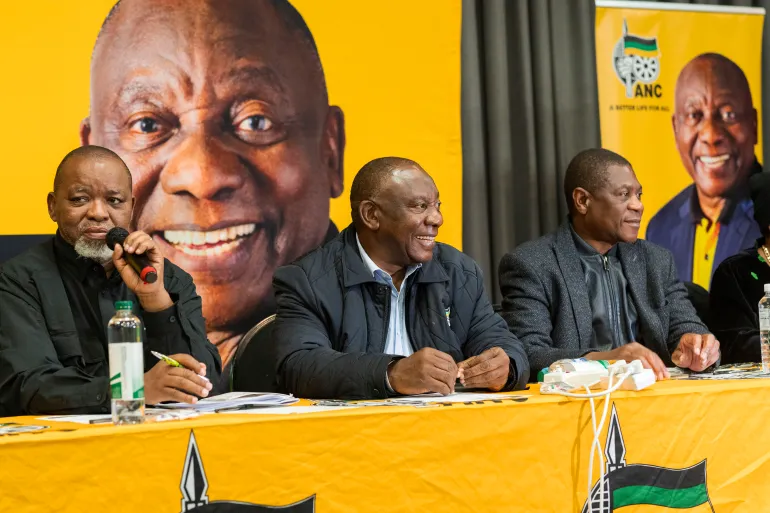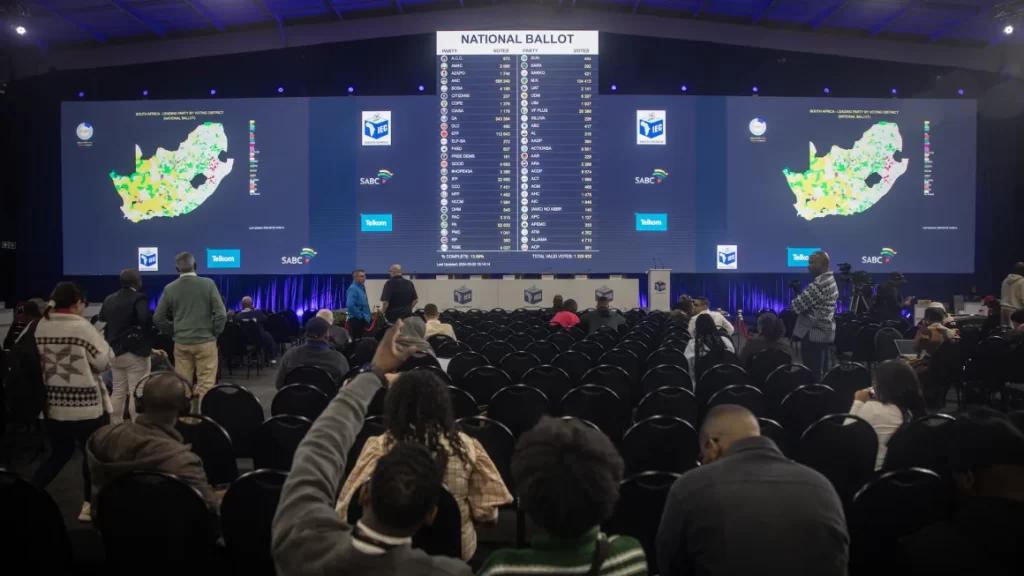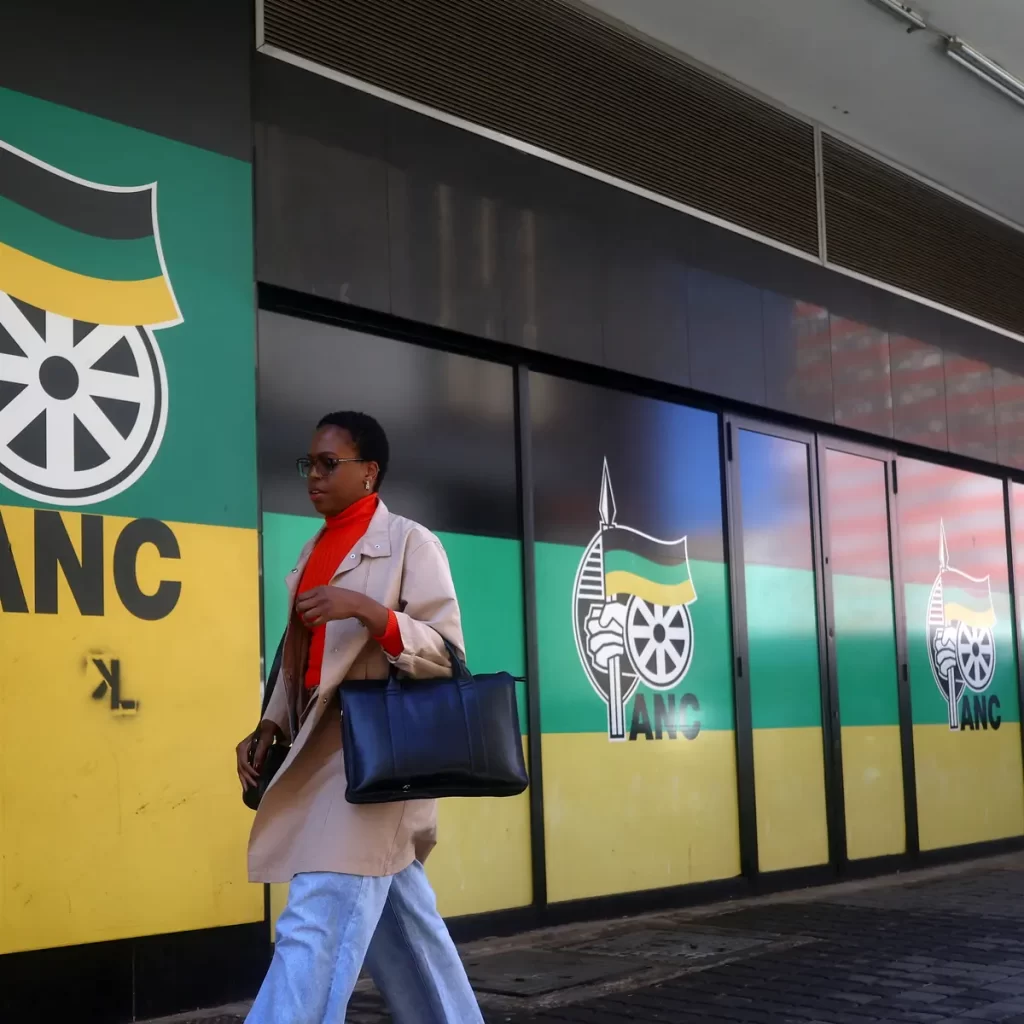As South Africa’s newly elected parliament convenes for the first time following the May 29 elections, the C has agreed to form a government of national unity with three other parties, including its largest rival, the pro-business Democratic Alliance (DA), according to public broadcaster SABC.
The ANC, which has been in power since the end of apartheid in 1994, lost its majority for the first time in the recent elections, prompting two weeks of intensive behind-the-scenes negotiations with other parties. The talks came down to the wire as lawmakers gathered to be sworn in and elect the chamber’s speaker, deputy speaker, and the country’s president.

Sihle Zikalala, a member of the ANC’s governing body, celebrated the agreement on X (formerly Twitter), stating, “Today marks the beginning of a new era where we put our differences aside and unite for the betterment of all South Africans.”
SABC reported that the unity government would include the ANC, the DA, the socially conservative Inkatha Freedom Party (IFP), and the right-wing Patriotic Alliance (PA). The DA is set to secure the post of deputy speaker of the National Assembly.

President Cyril Ramaphosa, the ANC leader, is expected to win a new term in office under the terms of the agreement, with the three other parties voting in his favor, according to a report on the TimesLive news website. However, details of the agreement and any policy concessions made by the ANC to its new partners have not been immediately made public.
The rand currency reacted positively to the reports of a deal involving the ANC and DA, which has been the preferred option among markets and investors.
As the swearing-in of lawmakers began, DA officials confirmed that details were still being finalized, with senior DA official Helen Zille stating that the party’s lawmakers would support Ramaphosa for president “if the deal is signed.”

The ANC’s central dilemma since the election has been whether to work with the DA, which is favored by investors for its free-market policies but is unpopular with ANC voters who view it as a defender of the privileged white minority’s interests. The inclusion of the IFP, with its ethnic Zulu base, and the PA, which draws support from the colored (mixed-race) community, may help make the DA more palatable to ANC voters.
London-based research firm Capital Economics noted that investors are welcoming the prospect of a coalition involving the ANC and DA, as it is expected to ensure policy continuity or even accelerate reforms. The exclusion of the Economic Freedom Fighters (EFF) and the uMkhonto we Sizwe (MK) party from policymaking is also seen as a positive, given their radical agendas, which include rapid land redistribution, widespread nationalizations, and increased welfare support.
Credit: CNN



